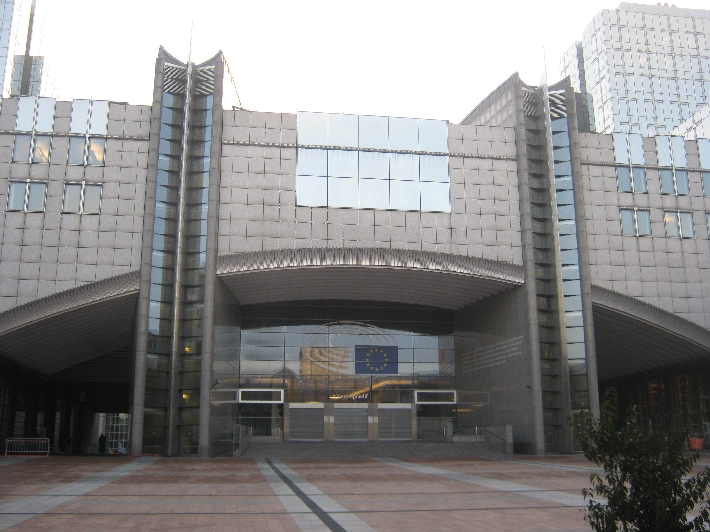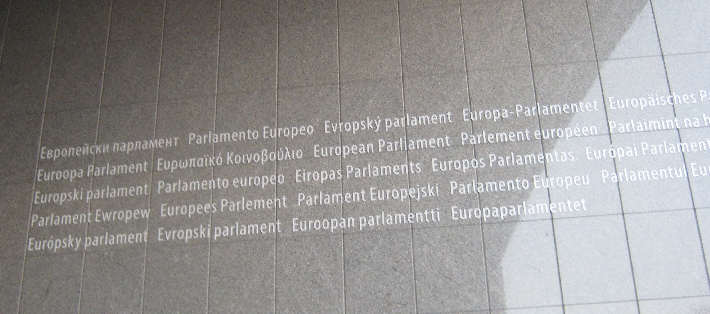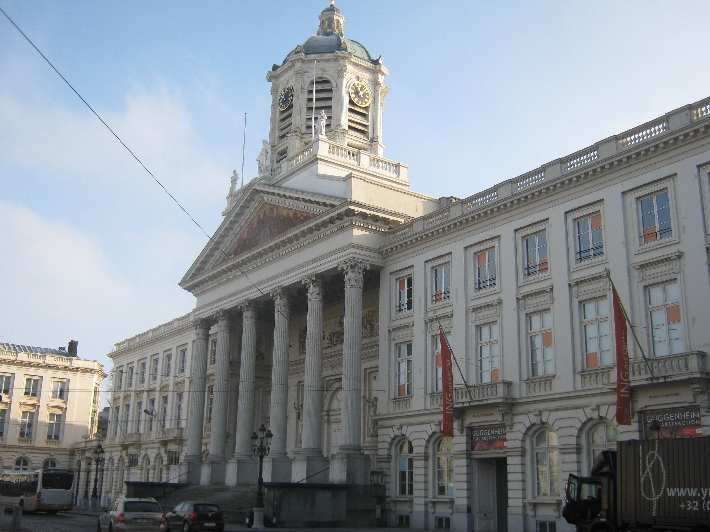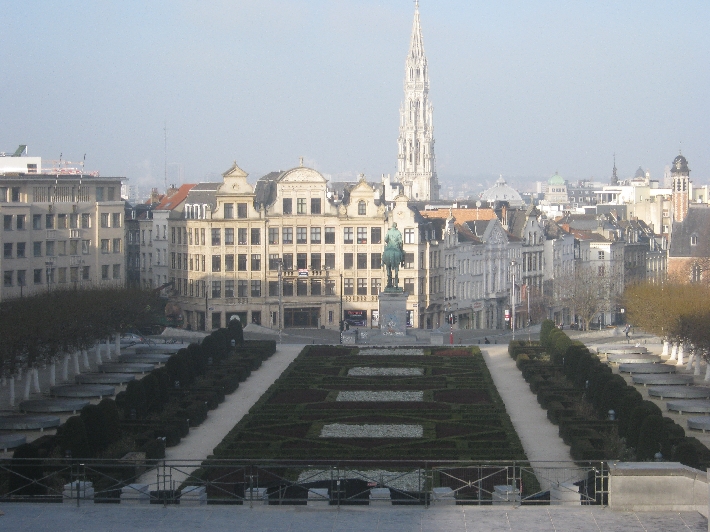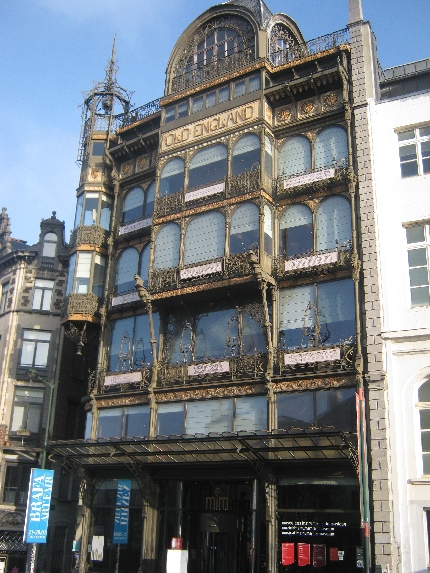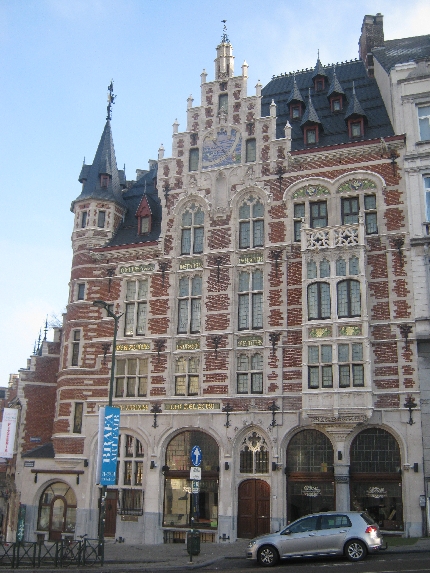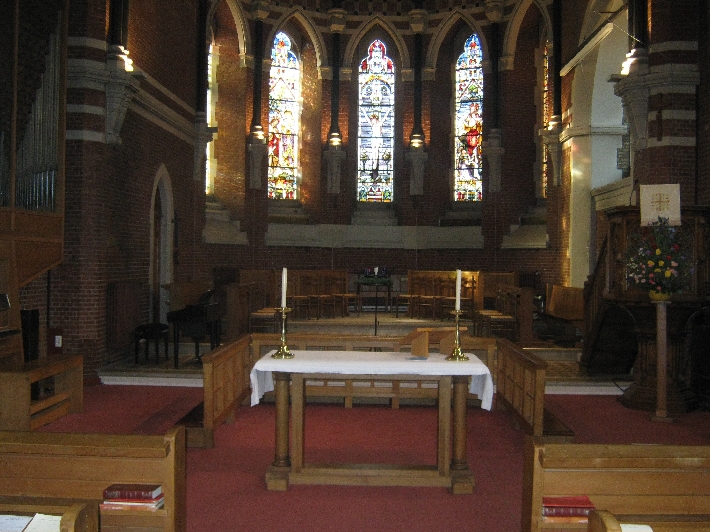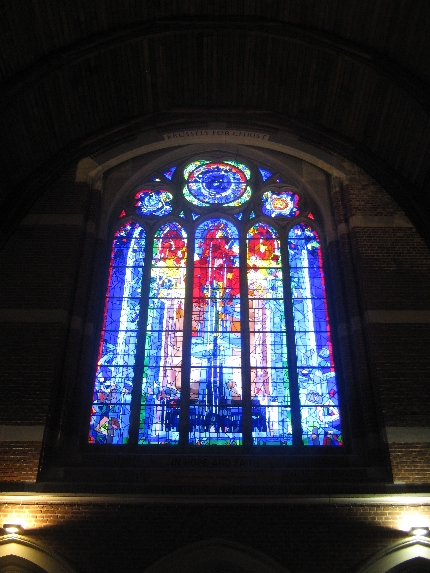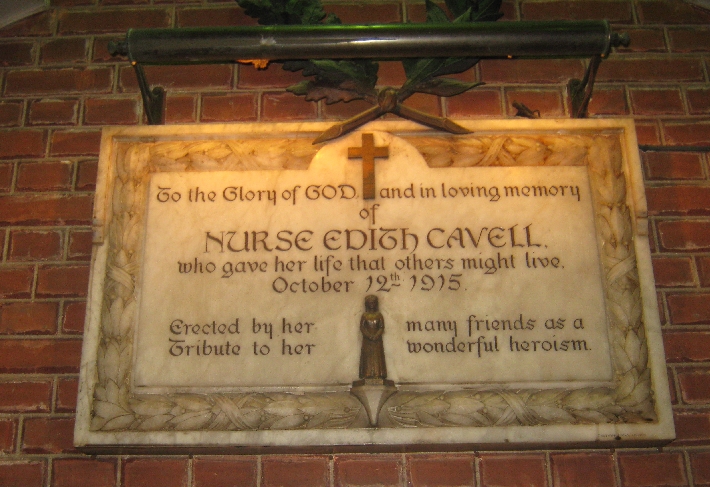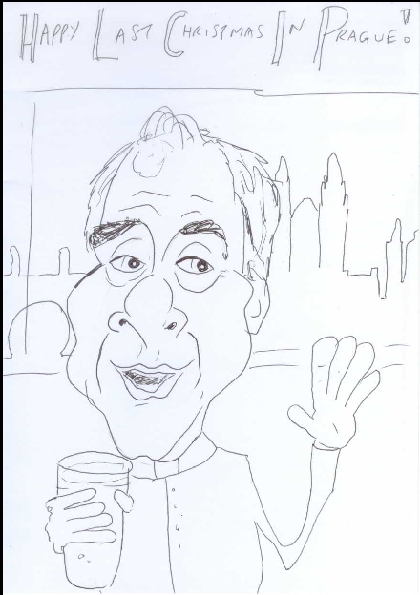After a very cold and snowy winter, as I explained in my eighth blog anniversary post, in the last couple of weeks, Winter has slowly begun to recede and Spring is arriving. Therefore, it is certainly time to get my blog out of hibernation, being very aware that I haven’t posted anything here for a month.
There are numerous events that I could write about but here are just three highlights from the last couple of weeks.
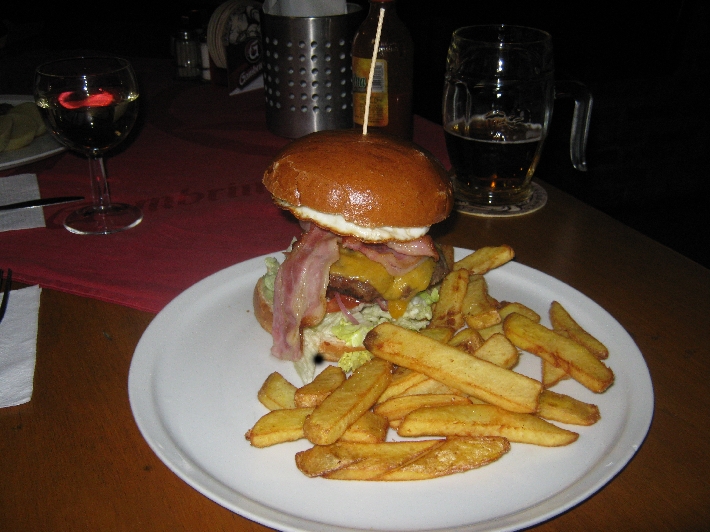
Birthday
On Sunday 26th February, I celebrated my sixty-fifth birthday. This is the second time since moving to Prague, that my birthday has fallen on a Sunday. The last time was on the occasion of my sixtieth birthday in 2012 which was also a leap year. There has since been a further leap year in 2016 meaning that my birthday in 2017 was once more on a Sunday.
Whilst I was aware that certain members of the congregation knew it was my birthday, I made no mention of it during our 11.00 Sung Eucharist that morning, hoping that after post-Eucharistic coffee and refreshments, I could just go on to a quiet birthday lunch with Sybille, who had celebrated her forty-ninth birthday on Friday 24th February.
At the end of the service, having instructed the congregation to, ‘Go in peace to love and serve the Lord’ and they had responded, ‘In the name of Christ. Amen’, I acknowledged the altar and then set off to walk down the aisle to the Church door. But what did Professor Michal Novenko strike up with as his organ postlude? ‘Happy Birthday to you!’ I was therefore duly serenaded by the whole congregation as I made my exit 🙂 I discovered afterwards that Churchwarden Gordon Truefitt, once having received communion, had nipped up to the balcony and worded up Michal 😉
I did eventually have my quiet birthday lunch with Sybille in one of our favourite restaurants, Fraktal. It is known as serving the best burgers in Prague, and on their Víkendové menu, is my favourite Fredov snídanový burger. I did manage to take a photograph of mine before consuming it!
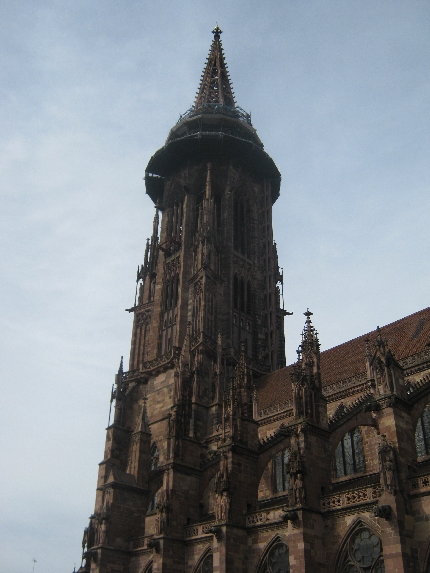
Council of Anglican and Episcopal Churches in Germany (CAECG)
Having officiated at my final Ash Wednesday Eucharist in Prague on the evening of Wednesday 1st March, the following morning, I set out at 07.00, to drive to Freiburg im Breisgau. This was to attend my first meeting of CAECG, in my capacity of being the coordinator for English-language Anglican worship in Dresden. My journey took six & three-quarter hours including two brief breaks, but was made at least twenty minutes longer than it should have been, by a Stau on the Autobahn near Heilbronn.
Germany is part of continental Europe where there is what is proverbially known as ‘overlapping ecclesiastical jurisdiction’. There are a number of Anglican congregations which are part of the Church of England’s Diocese in Europe. But there are also several congregations that are part of the Convocation of Episcopal Churches in Europe. Most but not all of these Episcopal congregations, came about as a result of the American zone of occupation, following the end of World War Two.
CAECG was established about twenty years ago, to coordinate and support the work of both ‘Anglican Churches’, within Germany. From 15.00 on the afternoon of Thursday 2nd to lunchtime on Friday 3rd, we met as a clergy chapter, sharing experiences of ministry and discussing pertinent issues. Following a two hour afternoon break, during which I was able to enjoy a brief walking exploration of the Altstadt of Freiburg, we were joined by elected lay delegates for the following twenty-four hours.
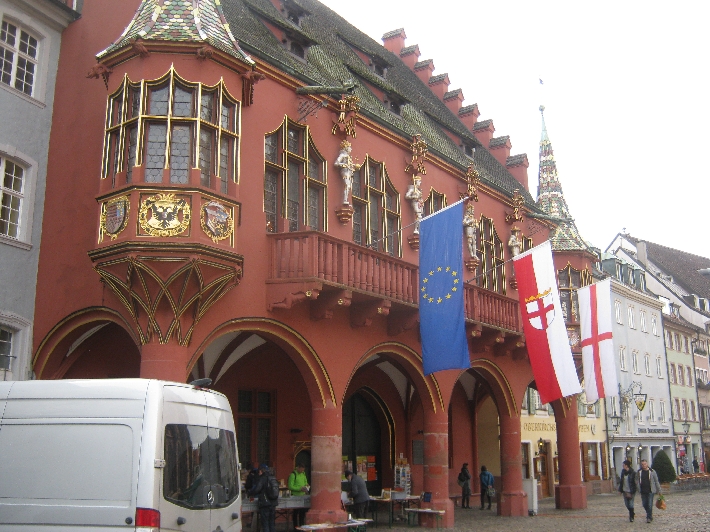
First we dealt with various business matters, but then we enjoyed three talks with impromptu questions and discussion, given by Rev’d Dr Charlotte Methuen. In the year that marks the five-hundredth anniversary of Martin Luther and his ninety-five theses, Charlotte spoke about Luther, the issues facing the German Church at that time, and then how his teaching and theology impacted on Church of England liturgy and Church practice. Wonderfully stimulating and most enjoyable.
On Saturday 4th March following lunch, I drove back to Prague, giving a lift to Archdeacon Colin Williams. Colin is both Archdeacon of Germany and Northern Europe, as well as being Archdeacon for the Eastern Archdeaconry. Therefore when we crossed from north Bavaria into the Czech Republic, we crossed his Archidiaconal boundary 🙂 On Sunday 5th March, Archdeacon Colin was the preacher at our 11.00 Sung Eucharist. Then following post-Eucharistic coffee and refreshments, he held a further ‘Vacancy Meeting’ with the Prague Church Council, helping them plan for the future ‘post Rixit’, as my retirement has become known 🙂 , including compiling a Chaplaincy profile and person specification as part of the recruitment process for finding my successor.
House hunting
Ever since the beginning of the year, I have become very aware that I need to find somewhere to live, once I retire on the Sunday 30th April 2017. I previously wrote about my plans in my first blog post of 2017. However, in recent weeks, I have become increasingly frustrated with Czech Real Estate Agents, who seem to lack desire to sell any property in their portfolio.
Numerous Estate Agents have websites that are in both Czech and English. The reasonable assumption is that they recognise that some potential buyers will not be fluent in Czech. Yet when I have sent off enquiries in English about certain properties, silence has ensued.
However, in the past couple of days, I have found two properties that look suitable, located in my area of search. Even better, I’ve had prompt responses in English from the respective agents. In particular, Martin Tonder of Vesta Realitní, phoned me within half an hour of receiving my email. When I missed his call, he immediately followed it up with a text message, offering me the opportunity to view the property the next day which was today.
When I met Martin today, as well as speaking to me in English, aided by having lived and worked in the USA and being married to an American, he was most helpful in addressing and answering my queries. He even gave me the ultimate compliment, saying he had been reading this blog 😀 No property will fulfil every requirement of mine, but the one he showed me today looks very promising. Watch this space!


